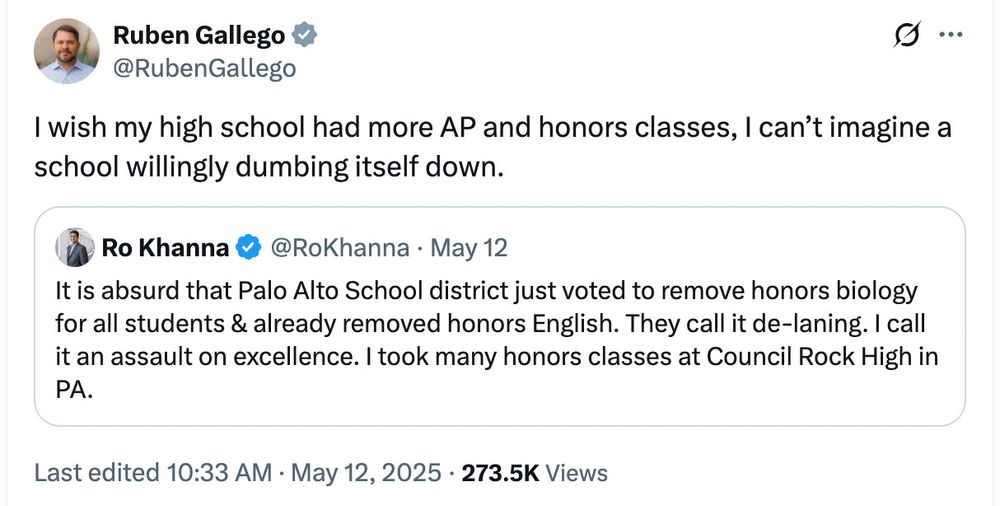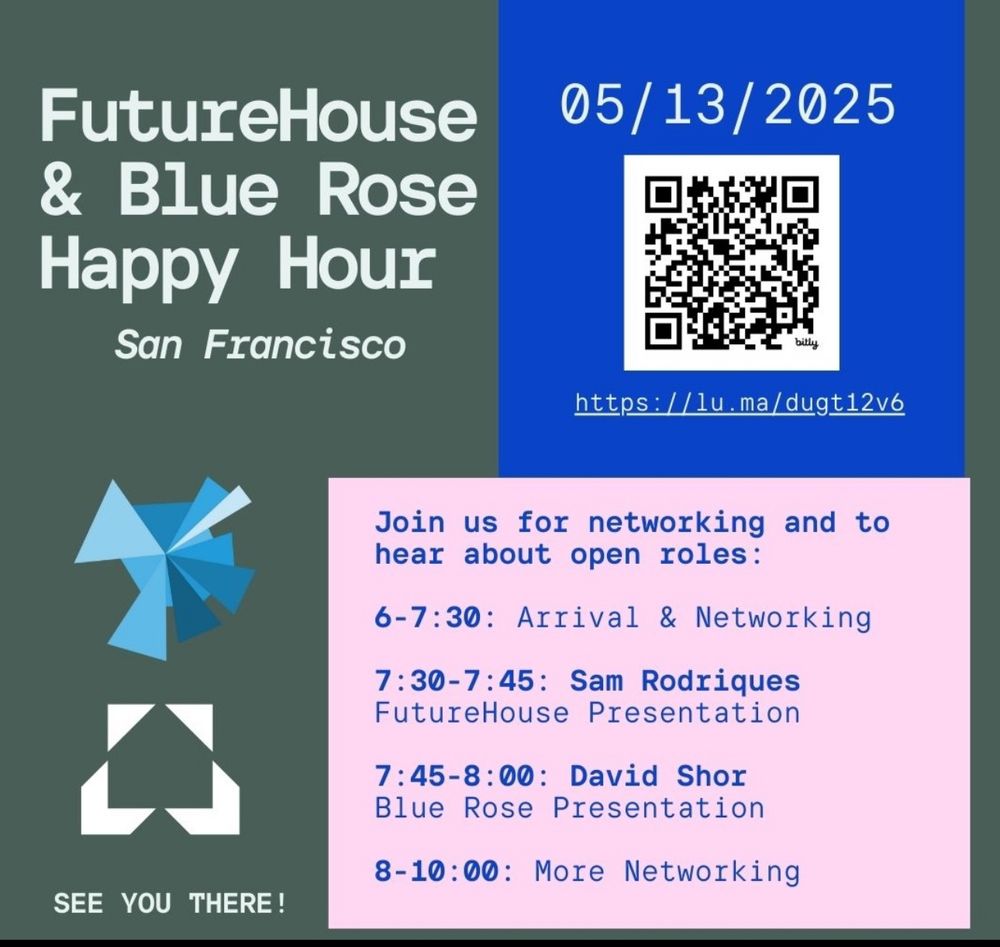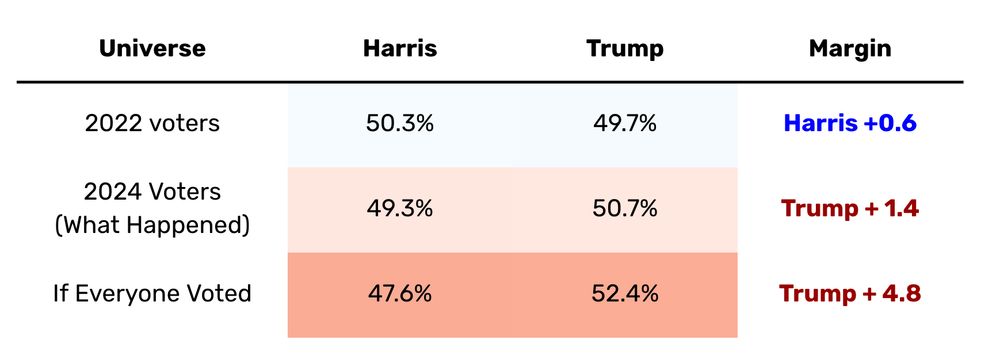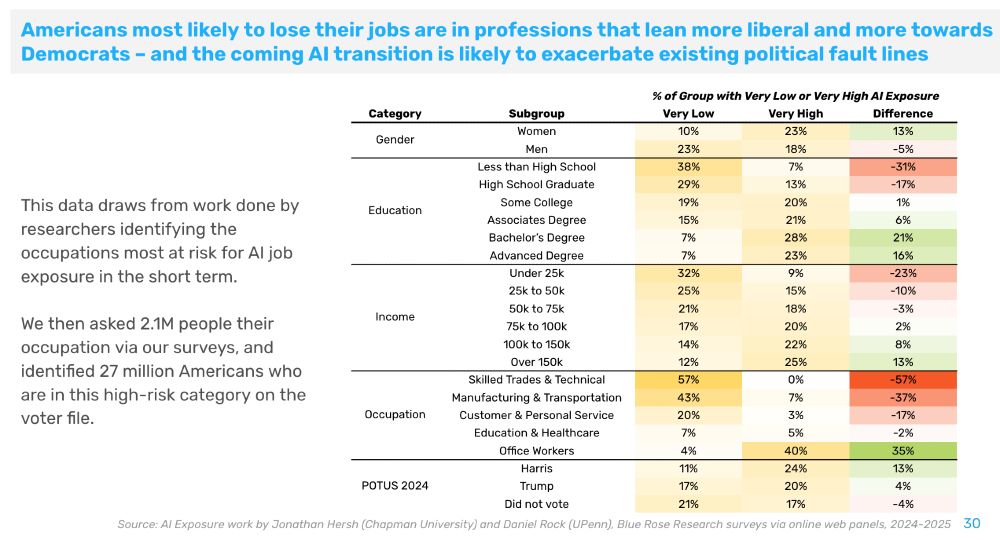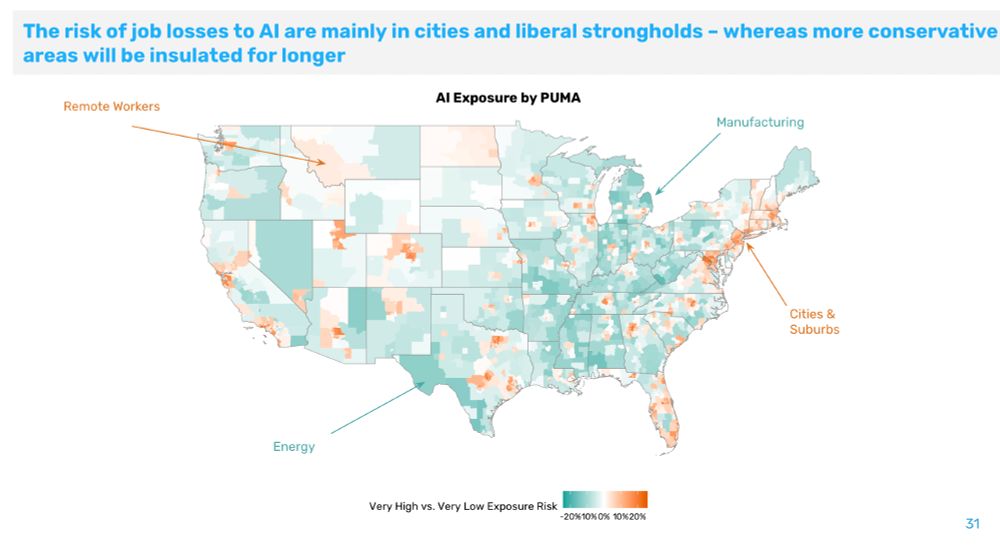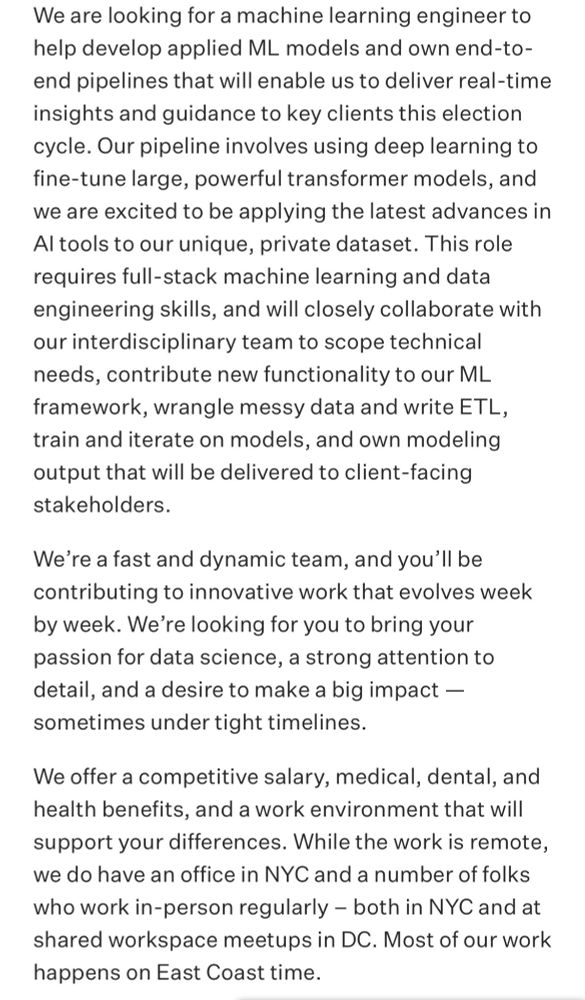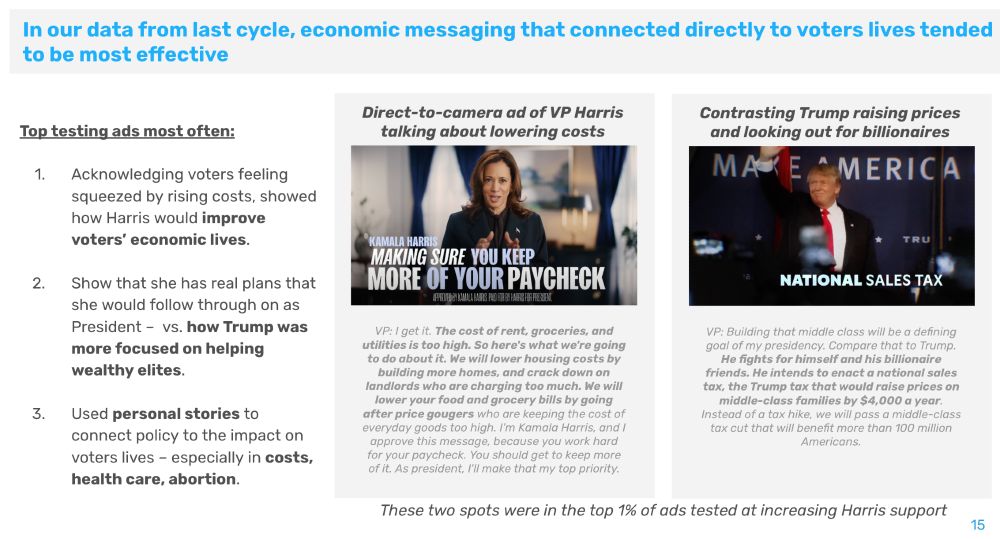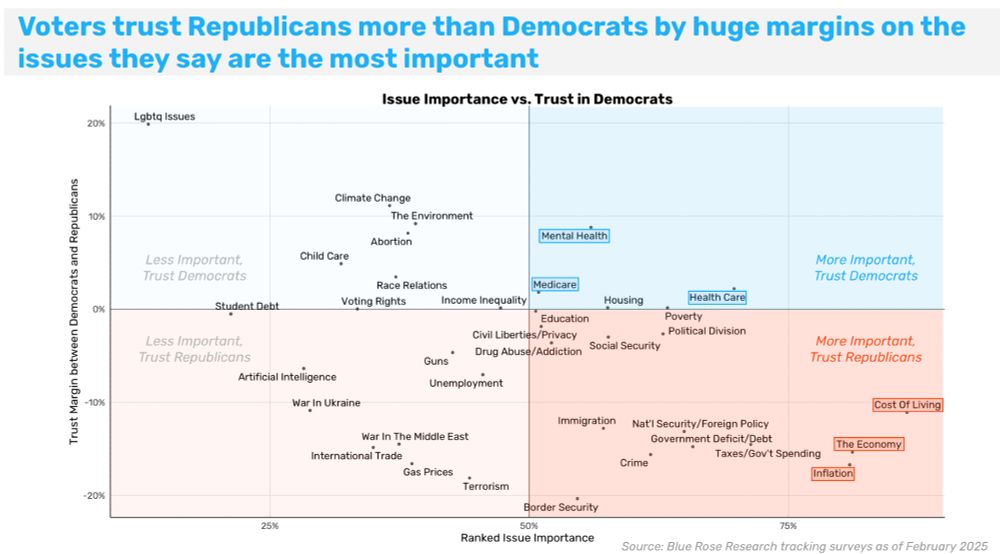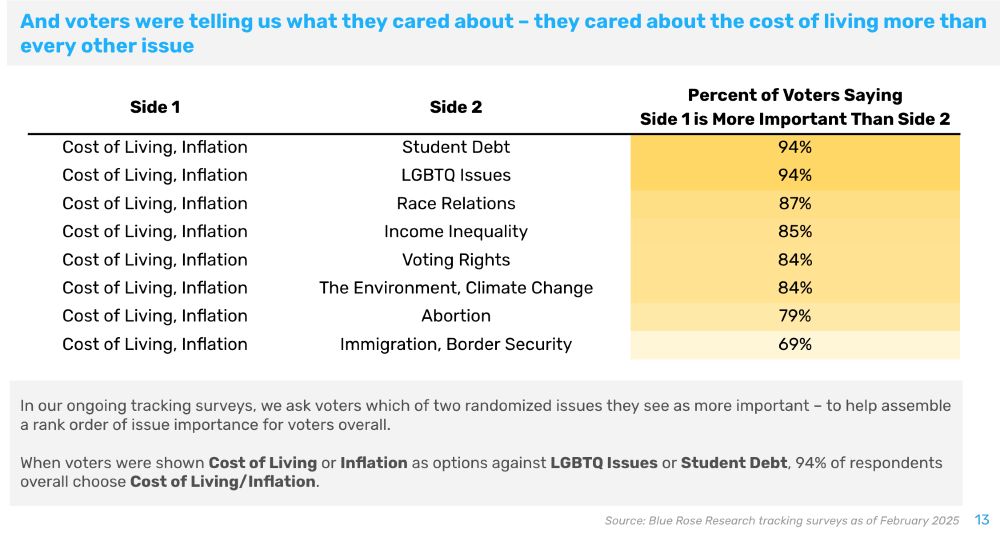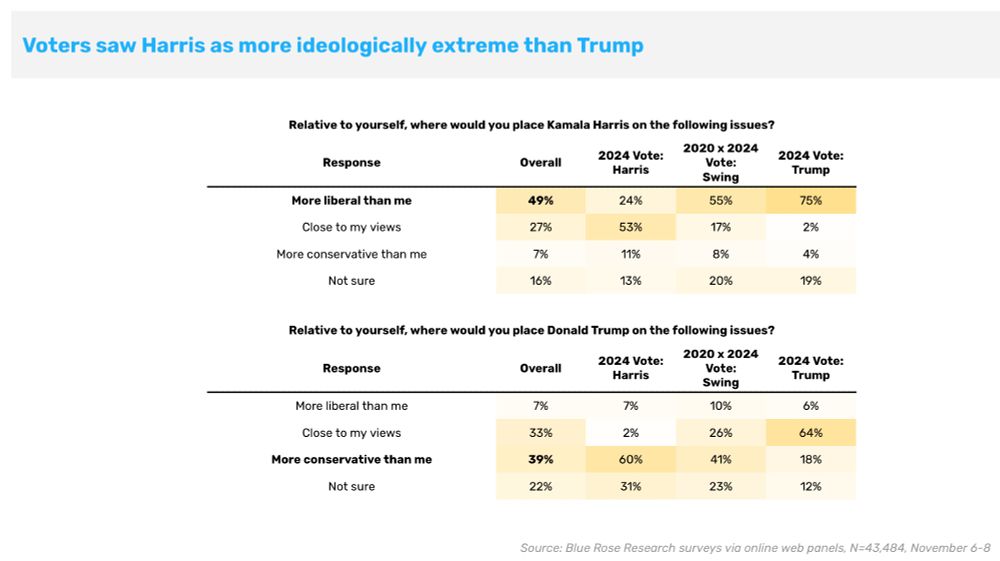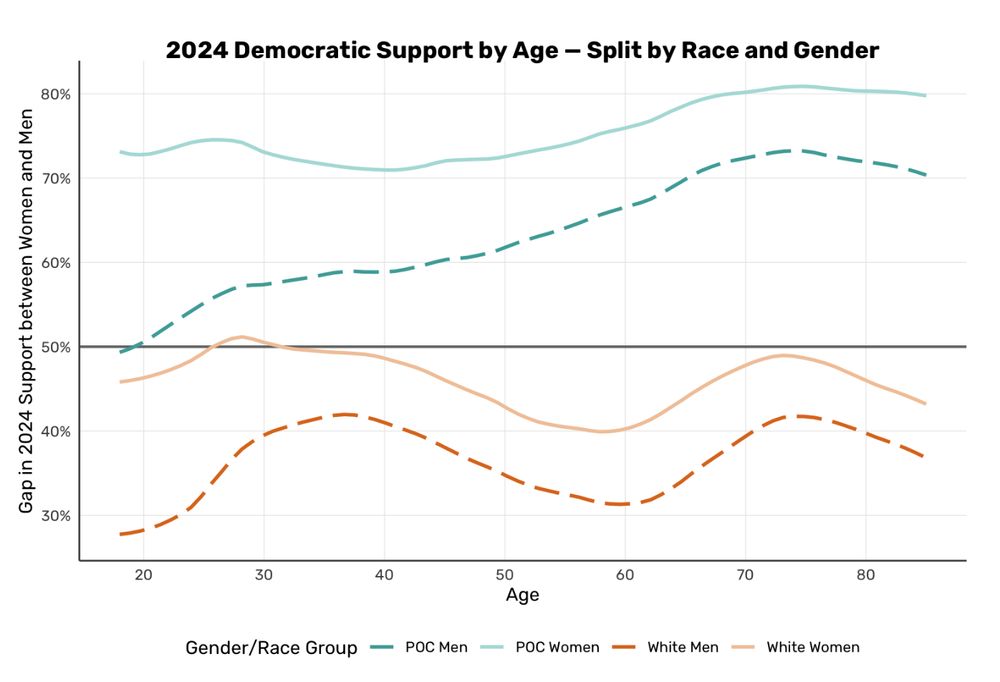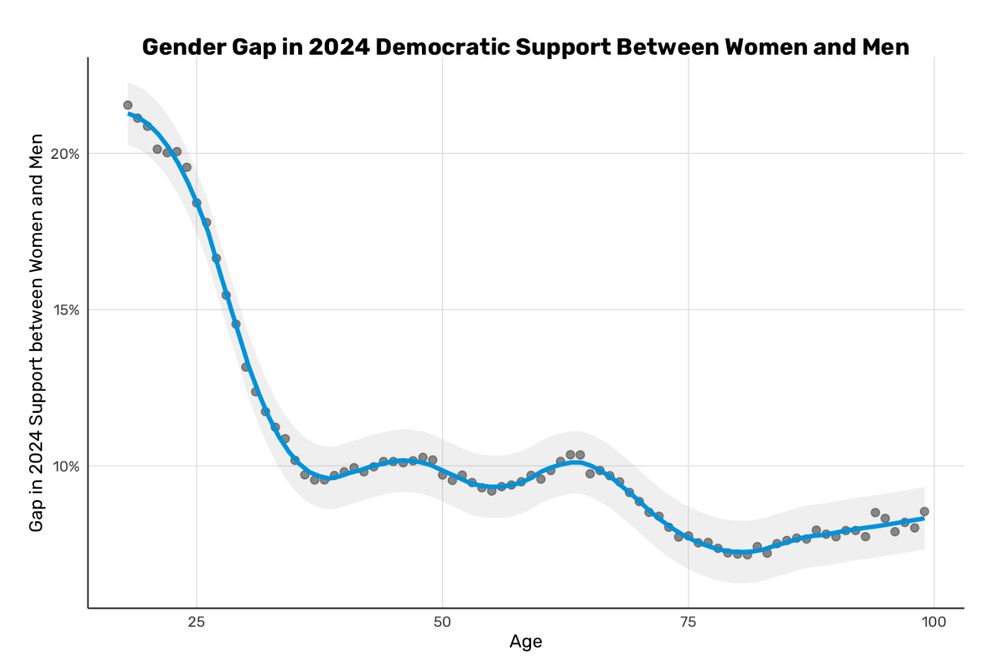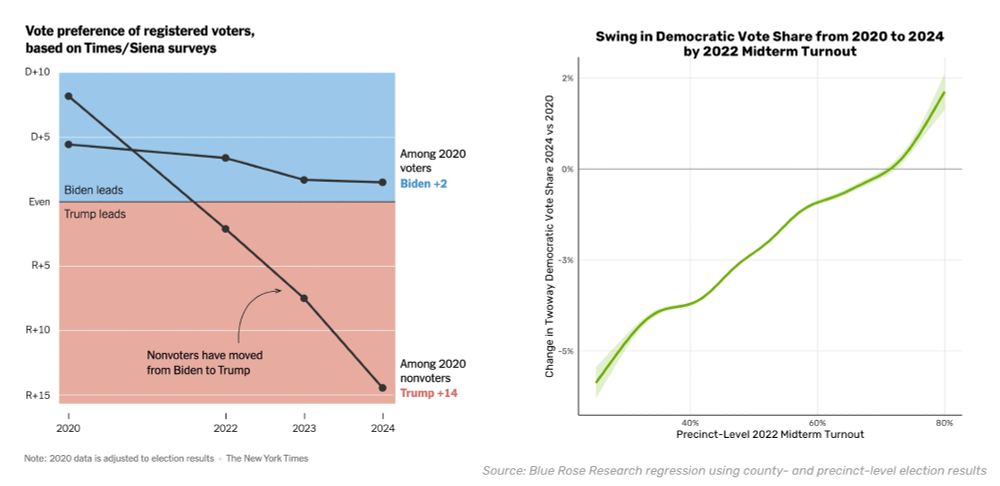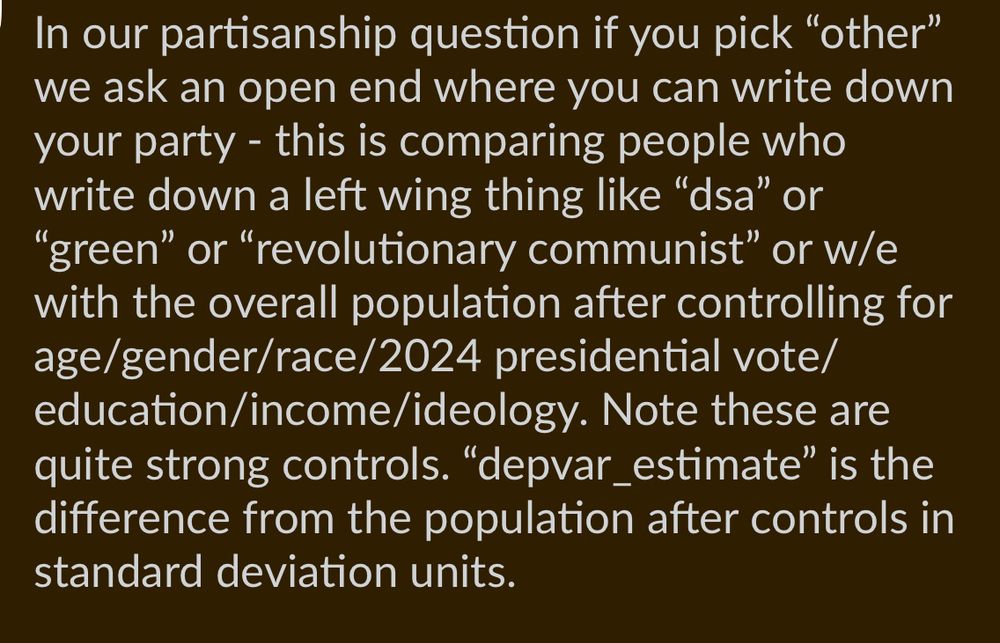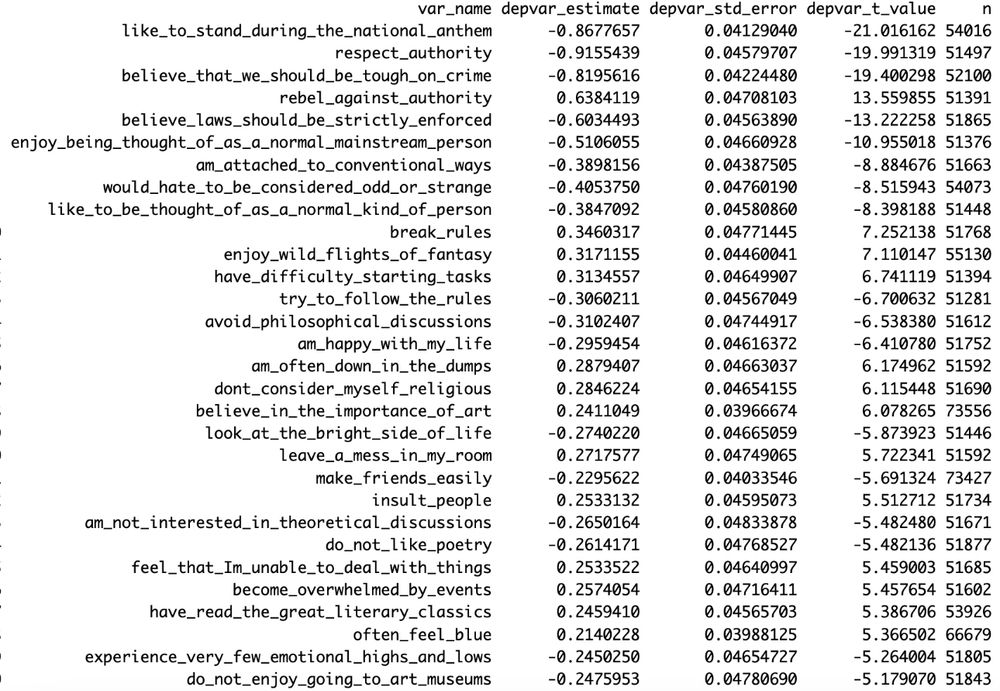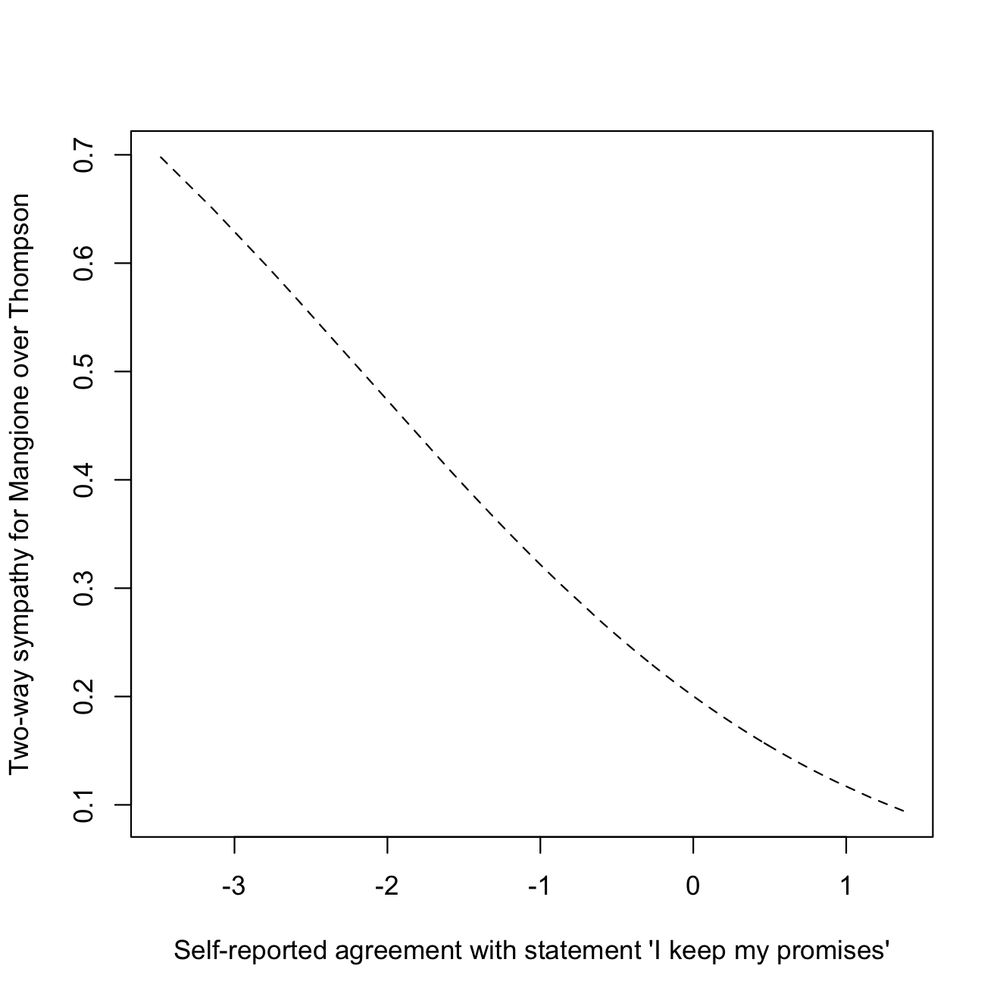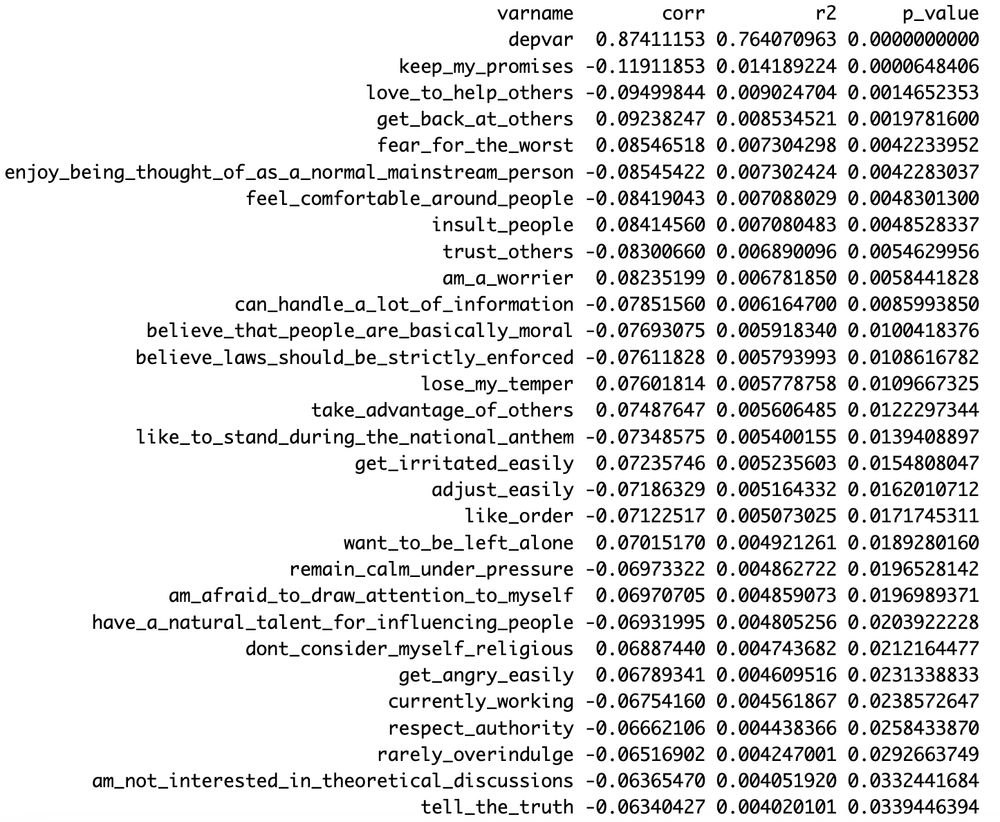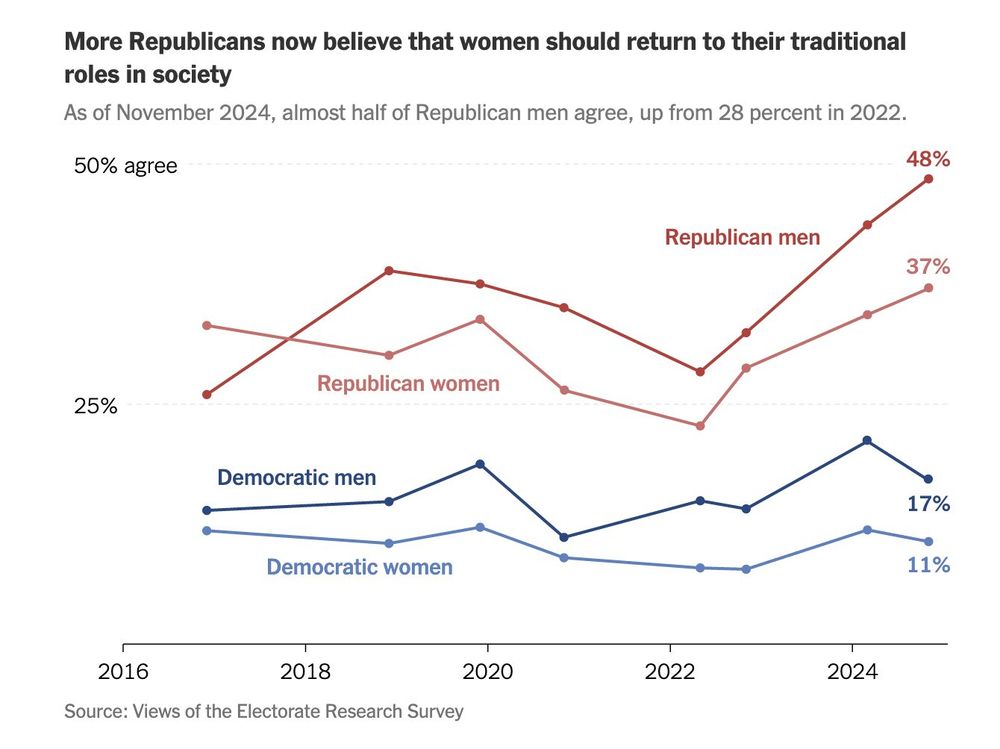David Shor
Head of Data Science at Blue Rose Research, based in NYC, originally from Miami.
I try to elect Democrats.
Views are my own. he/him🌹
- Really great to see @rokhanna.bsky.social stand up for tracking - removing advanced classes from schools is literally the single most unpopular policy we've ever polled
- Great to see @gallego.senate.gov speak common sense on this issue too
- If you're in the Bay Area tomorrow and want to learn more about ways to apply AI skills toward progressive change and fighting Trump, come check us out on Tuesday May 13th! lu.ma/dugt12v6
- Excited to join @ezraklein to talk through what happened in 2024. There's a turnout story this cycle, but not the one we're used to talking about. With less-engaged and less-likely voters becoming more Republican, a larger turnout meant a more GOP electorate.
- Today’s episode of The Ezra Klein Show. @davidshor.bsky.social walks through what voter data reveals about the 2024 election — and how the American electorate is shifting. open.spotify.com/episode/2S6L... youtu.be/Sx0J7dIlL7c?...
- [Not loaded yet]
- We convert into two way for everything
- [Not loaded yet]
-
View full threadLike - they had 3-5x as many impressions as us on TikTok, our survey experiments indicate in a lab their content was 2-3x more effective per impression, it went from ~0 to the dominant source of news for young people, cross-sectional regression and panel data directionally agree
- But to be clear there's a lot to study and a lot of uncertainty about how important this is and I don't want to pretend there isn't - that's a hard thing to communicate
- [Not loaded yet]
- I’m very confident in the sign given the information available (part of which is ~thousands of RCTs we’ve done of social media videos on both sides), reasonable people can disagree over the magnitude.
- There's some work by others that uses multi-year panel data which provides a cleaner identification strategy that also seems to link TikTok usage to radicalization that's due to be published soon.
- Obviously you can never be sure of basically any causal relationship - but I think it's a good idea to talk about something when you're 90% sure it's real rather than wait until you're 99.99% sure.
- I think that if you do a regression predicting [support 24] - [support 20] with *really strong controls* [ideology, PID, demos, etc] and you still get a strong TikTok coefficient, that is pretty suggestive.
- Some other context is that if you cycle through DVs you see pretty interesting texture that is broadly consistent with persuasion (IE, very large effects on pro-Russia attitudes), and also see dose-dependent effects for political tiktok consumption controlling for tiktok use.
- [Not loaded yet]
- [Not loaded yet]
- The full interview breaks our black voters separately, as does another slide in this tweet thread, though not by age. Just a lot of material to cover there’s going to be some compression.
- I mention this in the Eric interview, but the young African American numbers really went up a lot after then Kamala switch
- [Not loaded yet]
- [Not loaded yet]
- secure.actblue.com/donate/cooke... is great imo
- [Not loaded yet]
- [Not loaded yet]
- It probably should be worth something that NYT (and Pew I think?) both saw giant swings by vote history. It’s like the second thing after age that shows up in a stepwise predicting swing it’s going to show up clearly in most voter validated data sets I’d guess?
- It shows up really clearly in ecological regression that non-voters swung heavily right - it also shows up in administrative data if you match a 2020 file to a 2024 one - non-voters see a much larger drop in two way party registration
- It also was the primary finding of the Nate Cohn upshot polling
- [Not loaded yet]
- [Not loaded yet]
- This is just asking people whether they planned to vote for Harris or Trump
- [Not loaded yet]
- Definitely agree it's a big part of the story!
- [Not loaded yet]
- It will be very helpful for us in 2026!
- The economists will point out that exposure!=job loss because everything depends on elasticities that are impossible to know ahead of time - which is a subset I think of the broader inability to be confident about anything in this topic. But I think it's still a useful exercise!
- Obviously nobody can really know how AI is going to play out - but I wanted to spell out a scenario that I am worried about that I think is fairly plausible using the best data I could
- [Not loaded yet]
- Step 1: two economists I know did a bunch of work to estimate AI exposure (fraction of hours "impacted" by AI) on ONET-code level Step 2: Collect ONET-code level occupation for ~1 million survey takers Step 3: Break exposure into quintiles and model it out to everyone on the voter file (MRP-like)
- This is based on surveying ~150k folks who we can confirm with voter file data did not vote in 2024
- But we can't just focus on winning the last war - AI capabilities increasing exponentially but will impact America unevenly in ways that risk accelerating our existing cultural divides - Democrats to be proactive Find the full 2024 analysis/contact us here: data.blueroseresearch.org/2024retro
- Also we’re hiring for an AI-focused machine learning engineer role at Blue Rose! This is a great chance to be at the forefront of using cutting edge machine learning techniques to resist Donald Trump! t.co/dwE3D3mJ4F
- [Not loaded yet]
- [Not loaded yet]
- It shows up very clearly in administrative party reg data as well, and all of these models come from voter file matched survey responses, which alleviate a lot of the data quality issues talked about in the article
- [Not loaded yet]
- [Not loaded yet]
- One of my favorite interviews I've ever done!
- [Not loaded yet]
- Because Donald Trump was extremely unlikable - something like 55% of voters agreed that he was a criminal.
- [This user deactivated their account]
- This slide is all Harris two way support
- Now what? As Democrats try to shape the story against Trump, the most effective critiques of Trump are actually pretty similar to the ways Democrats ran against Mitt Romney: he’s giving huge tax breaks to the wealthy and trying to cut programs like Social Security and Medicare.
- Some good news: messages on economic populism that acknowledge high costs of living and our policies to bring down prices are very persuasive at getting people to support Democrats.
- Trump was just as unpopular going into November as he was in 2020. What changed this cycle is Democrats' massive favorability decline and Republicans trust advantages on the issues that mattered most to voters this cycle (the economy/inflation/cost of living).
- This cycle, Trump did a good job of convincing voters he was a moderate: in our polling after the election 49% of swing voters said Harris was more liberal than they were vs 39% of voters who said Trump was more conservative than them (similar to what we saw in 2016)
- A major shift we saw this cycle is that young people have gone from being one of the most progressive generations to one of the most conservative. Republicans won 18 year old white men, white women, and men of color, and doubled their support with men under 25.
- Another massive shift Democrats saw in 2024 is that people who don't follow the news closely went from being slightly left in 2020 to voting for Trump by double digits. On the flipside, Democrats actually increased their margins with high-information voters from 2020.
- In November, we saw a swing similar in magnitude to the realignment we saw in 2016: Hispanic, Asian, young voters, and politically disengaged voters swung towards Trump. Trump also made substantial gains among naturalized citizens (about 10% of the electorate).
- [Not loaded yet]
- Totally! The group I singled out there is ~1% of the population (though they use twitter at much higher rates than the overall population)
- The defining psychometric characteristics of leftist anti-Dems after you control for demographics/ideology are pretty anchored around wanting to rebel against authority and be different than the mainstream. They can’t really help it, it’s who they are on a very fundamental level
- [Not loaded yet]
- Just me doing stuff in R with my data sorry
- Come work with us!
- People who most strongly disagree with “I keep my promises” are ~7x likelier to support Luigi than those who strongly agree
- [Not loaded yet]
- It’s in the open SAPA inventory
- [Not loaded yet]
- They seem pretty miserable if you go trait by trait bsky.app/profile/davi...
- [Not loaded yet]
- If you look at the full list of partial correlations it seems pretty loaded on mental health
- Full list of partial correlations (controlling for age/race/ideology/religiosity/gun ownership) with a dependent variable of whether you are more sympathetic to Thompson or to Mangione - Mangione is coded as 1. Keep in mind correlations for binary variables are low even when effect sizes are large.
- The share of Republican men and women who believe "women should return to their traditional gender roles" has increased by ~1.5X since 2022, with the position now achieving plurality status among GOP men. t.co/bjOaDde6Y0
- [Not loaded yet]
- mostly the latter
- [Not loaded yet]
- probably whatever is causing this: bsky.app/profile/rube...

